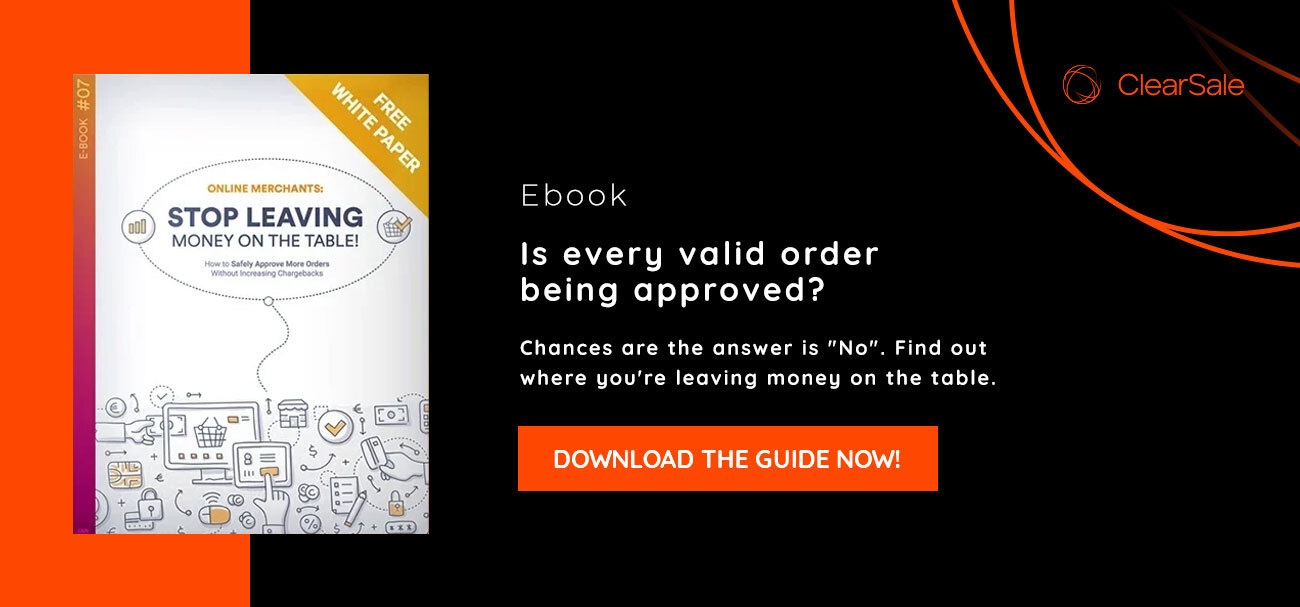Chargeback Fees: What Do Chargebacks Cost?
In the course of doing business online, many merchants believe chargebacks are an inevitable inconvenience. Unfortunately, what these merchants may not realize is the cost of each chargeback is far more than just the cost of the product itself or the chargeback fee they’re assessed.
In fact, each dollar of fraud cost merchants $2.40 in 2016, and by 2018, that number had increased to $2.94. For e-commerce merchants selling digital goods, they end up paying an average $3.29 for each dollar of fraud.
Here are just a few of the fees a merchant incurs each time they’re hit with a chargeback and how these expenses can permanently affect a merchant’s ability to maintain their good reputation and grow their business.
You can listen to the audio version of the article clicking on the player bellow.
Credit Card Processing Fees
Credit card processors charge merchants a fee for each transaction processed, and this fee generally includes the wholesale cost of the transaction plus the processor’s rate markup. If the transaction results in a chargeback – even if the merchant isn’t at fault – the merchant will be out these processing fees.
Acquiring Bank Fees
When a merchant receives a chargeback on a transaction, the acquiring bank assesses a chargeback fee – often ranging from $20-$100 – to cover the costs the acquirer incurs during the chargeback process. And the higher risk the merchant, the higher the fees.
Even if a merchant fights and wins a chargeback dispute and recovers the lost revenue, the acquiring bank won’t refund these chargeback fees.
Expenses Associated With Elevated Chargeback Ratios
Acquiring banks keep track of which businesses have high chargeback ratios, and those merchants may find themselves subject to additional fees for each chargeback. And if chargeback ratios continue to rise, the acquiring banks may put online merchants into chargeback monitoring programs – resulting in even more fees. While some merchants may be offered a grace period upon being enrolled, most high-risk merchants will be assessed the fees immediately upon entering the program.
If merchants are unable to lower their chargeback rates, merchants might face rising processing fees and even having their merchant accounts terminated. If this happens, the best case scenario is that they’ll have to apply for a different high-risk merchant account. In the worst case, merchants could be blacklisted by acquirers entirely, making it impossible to accept credit cards – catastrophic to an online business.
Operational Expenses
Beyond the fees that a merchant is assessed following a chargeback, merchants also find themselves paying out the operational costs that are associated with a transaction. Some of these costs include:
- The value of the goods lost
- The manpower time associated with processing and shipping an order
- The costs involved with storing and managing inventory
- The shipping costs incurred on each order
- Software solution to help identify and prevent fraud
And these costs aren’t minimal; in fact, they often account for up to 20% of merchant revenue that ends up being returned when a customer files a chargeback.
Marketing Costs
Good customers don’t come easily or cheaply. Many e-commerce merchants invest significant amounts of money into marketing and advertising – sometimes up to 40% of their revenue. And that can be money wasted when transactions result in chargebacks and negative social media attention.
Tips for Minimizing Chargeback Fees
The best way for merchants to minimize chargeback fees is to prevent chargebacks from happening in the first place – and these best practices can help them do just that.
- Carefully communicate the business name that customers can expect to see on their statements
- Make it easy for customers to contact customer service 24/7/365 with questions or concerns
- Make return and refund policies clear and easy to find
- Require CVC2 (Mastercard), CVV2 (Visa), or CID (American Express) numbers for each transaction
- Limit declined transactions by locking a user out after a predetermined number of incorrect entries
Because chargebacks pose a serious threat to your bottom line, it’s also critical to implement a fraud prevention solution that offers guaranteed protection against chargebacks. Contact a ClearSale analyst today to learn how our unique solution gives you the peace of mind that you’ll never pay for a transaction that turns out to be fraudulent and results in a chargeback.
 Bruno Farinelli
Bruno Farinelli
